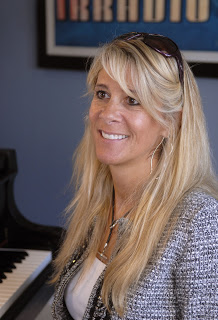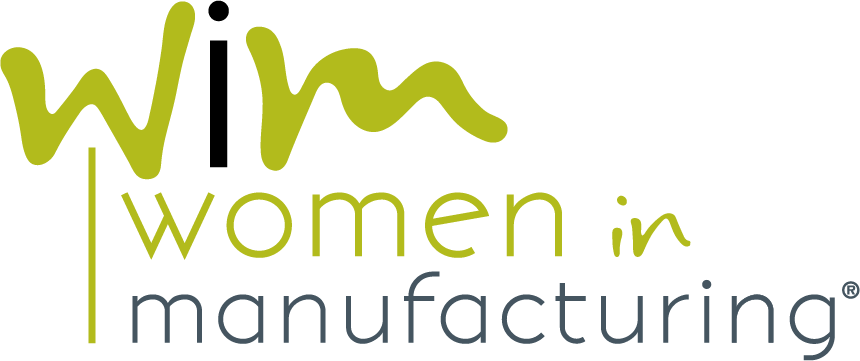Carol Craig, Founder at Craig Technologies

Carol Craig, Founder at Craig Technologies
#WiMHearHerStory | @WomeninMFG

At Women in Manufacturing, we are committed to supporting women in the manufacturing sector. We firmly believe that mentorship and community-building will help attract and retain women in manufacturing. As part of our mission, we feature on our blog the stories of women we admire who are currently working in manufacturing. The following is the latest installment of our "Hear Her Story" series.
Please tell our readers a little bit about your job and what your work looks like every day.
Every day is different. As owner and chief executive of my company, I am responsible for setting the course of business. I ensure that the needs of hundreds of people across 20 states in the U.S. are met. To do this, I make sure that I have the right people on the job to help me and my leadership team checks in around the clock to let me know how things are going. I am heavily involved in accounting, as I believe it is important for owners to truly understand their financial state and goals.
I’m very involved in the community as well, so I spend a lot of time ‘shifting gears’ from CEO (my day job) to non-profit supporter, to mentor, to community business leader. I miss spending time developing software, but I work closely with my director of product development to grow our internal software programs that support not only our company internally, but also our commercial customers. I have started traveling quite a bit because of the strategic growth goals of our company. Although most travel is business related, I try to include personal travel as well. I’m always working, regardless of the location, but I think that’s a good thing. I’d much rather send emails from the beach than not have a vacation at all!
How did you arrive at your current position? What attracted you to a career in manufacturing?
I didn’t necessarily look for a career in manufacturing, but I wasn’t afraid of it either. My mother, Thelma, worked in a lab at Caterpillar, and later worked in a machine shop as their database/administrative specialist. She helped me get a job during the summer while I was going to college, which included working the drill press and helping with other basic machine tasks. I was taking industrial engineering and CAD CAM classes at the time, so the job fit with my own goals. I went on to pursue my passion for computers and software engineering, but I remained aware that the experience I gained in manufacturing helped me understand the hardware that my software interfaced with to accomplish the mission (like avionics systems for military aircraft). After my engineering and technical services business grew, I eagerly took the opportunity to diversify into manufacturing because I knew that I could provide a unique capability to my customers from a software/hardware engineering perspective. I love being able to offer my aviation and aerospace customers the full range of custom support on both sides of the house.
At WiM, much of our work is dedicated to refuting outdated stereotypes about the manufacturing sector: stereotypes like the workplaces are dirty and dangerous and that the field and skills required are a better fit for men. Have you encountered stereotypes like these in your education or career and how did you overcome them?
Research shows that women, especially women in STEM fields, do better if they have a mentor. Has mentorship played any role in your career?
Absolutely. My mother has been the strongest role model and mentor in growing my business. She blazed trails herself by earning a Master’s degree in Mathematics education with a minor in Chemistry back in the 1950s. She was the first in her family to go to college. She is ambitious, unafraid to pursue challenges in non-traditional roles, and absolutely believes that all children deserve a chance to succeed. When she and my father, Carl, adopted me, they told me I could do whatever I wanted to do and be whatever I wanted to be. She actively sought activities and opportunities to direct high energy/ADHD tendencies. She was the first person I hired, and she still helps with accounting tasks at the age of 84. There is no way I could have done I what I have done without her support.
One of the key findings in WiM’s survey is that there is significant overlap between what young women want in careers and the attributes of careers in manufacturing today. But the survey also found that, too often, young women are not aware of the opportunities available in manufacturing. What do you think can be done to spread the word to women about career options in modern manufacturing?
I think there are a lot of women out there that could be role models. But, in general, women don’t like to boast about their talents and so they are understated. Women are often overlooked and may not feel empowered to step up and actively put themselves out there as role models. I think we need to do a better job at identifying those women and encouraging them to place themselves in scenarios where they can inspire the next generation.
Starting earlier in school would help as well. Introducing STEM subjects to elementary-aged girls, and younger, with approachable activities to which they can relate and aspire. I’ve seen some really creative scientific explorations performed for girls, like formulating lip gloss or designing pet shelters that make the STEM subjects more interesting for that age group. Programs like Junior Achievement, Odyssey of the Mind, and Future Problem Solvers give girls a chance to become introduced to STEM concepts in a fun and non-critical way.
Our survey also found that the majority of women in manufacturing today would recommend the sector to young women considering career options. Would you recommend a career in manufacturing? And, if so, why?
